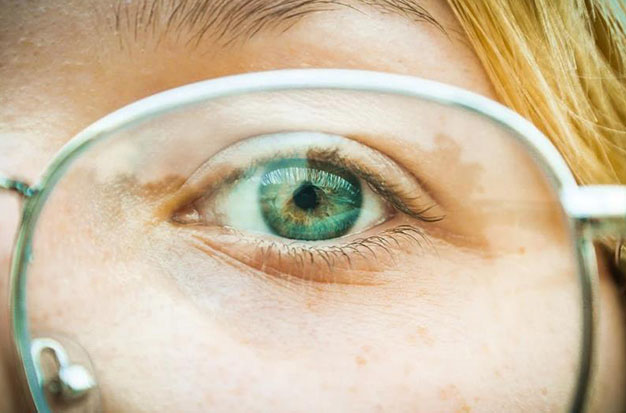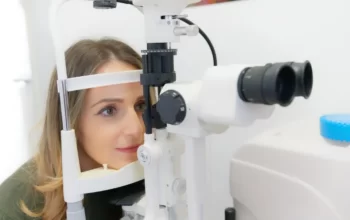
Your vision plays a crucial role in your life. Blindness may result from untreated cataracts. Although cataract surgery is always an option, you might be curious as to whether cataracts can be removed without surgery. To treat, halt, or stop the progression of cataracts naturally without surgery, continue reading to learn about additional options for cataract surgery.
What Is A Cataract And Is It Curable?
When proteins in the lens of the eye break down and clump together—often as a result of aging, physical trauma, or illness—a cataract develops. Your vision will become blurry as these clumps develop and change, and you might experience double vision in one eye, a yellowing or darkening of your vision, or a fog-like feeling. The images sent from the retina and optic nerve to the brain will be incomplete because these protein clumps stop light from passing through the eye normally.
Blindness can result from cataracts. They will probably develop in the other eye once they do in the first. In the US, people over the age of 40 are most susceptible to developing cataracts, though it can take many years for them to become serious. Surgery for cataracts is typically not necessary until a person is 60 years old. Over half of American adults over the age of 80 have cataracts or have had cataract surgery.
Although most visual acuity can be restored with cataract surgery, an outpatient procedure, many people prefer to stay out of surgery if at all possible. Natural treatments to prevent or treat cataracts have thus become increasingly popular. It’s critical to understand that your cataract treatment must be coordinated with your ophthalmologist or optometrist.
This will primarily entail keeping an eye on how your vision changes and modifying your prescription glasses and contact lenses as needed to maintain your visual acuity for as long as possible, but it may also involve making some lifestyle adjustments. Ultimately, surgery will still be necessary. Though medical researchers are looking into nonsurgical options, there are no known natural treatments for cataracts. The following list of purportedly effective “natural” treatments should be avoided. Instead, work with a medical expert.
Can Cataracts Be Reversed Without Surgery?
No, without surgery, cataracts cannot be reversed. The Food and Drug Administration and other government medical procedure regulators have not yet approved any non-surgical treatments for cataracts.
University researchers discovered a substance known as Compound 29 in 2015, according to a paper they published in the American Association for the Advancement of Science. In human lens tissue removed during cataract surgery, the water-soluble substance reversed hereditary and age-related cataracts. Studies were conducted on mice, which places some restrictions on Compound 29’s applicability to people.
As a potential treatment for cataracts, the substance lanosterol has also been the subject of extensive research. It is not water-soluble enough to be incorporated into an eye-drop solution, though.
Eye Drops: Can They Treat Cataracts?
At the moment, eye drops cannot treat cataracts. The National Institutes of Health confirmed in 2017 that surgery is still the only effective treatment for cataracts.
The substance N-acetyl carnosine, which transforms into the protein L-carnosine when it enters the cornea, may be used as an eye drop solution to stop or slow the progression of cataracts, according to a theory. To support this hypothesis, research must be done.
Can Cataracts Progress More Slowly?
There is no scientific evidence that suggests cataracts can be slowed down. However, a study by the Department of Ophthalmology at the Royal Liverpool University Hospital Trust advises against using steroid eye drops in addition to making the healthy lifestyle decisions mentioned above. You should also stay away from any drugs that might hasten the progression of a cataract.
What Will Occur In The Event That a Cataract Is Not Treated?
Delaying cataract treatment can lead to two main problems. The first is that waiting too long to have your cataracts removed can actually make the cataract removal procedure more difficult. Over time, cataracts become thicker and less malleable, making them more difficult to remove and raising the risk of complications during cataract surgery. However, complications from cataract surgery are incredibly rare when your cataracts are treated at the appropriate time.
The potential loss of quality of life brought on by vision loss is the second significant problem with delaying cataract treatment. The rate at which your cataract develops will determine how soon you start to experience problems. However, almost everyone who has had cataracts for a long time starts to have vision issues. These problems can make it difficult to perform daily tasks like reading, driving, or even recognizing people.

Is Cataract Surgery Required To Remove Them?
Once they have developed, there is no treatment option other than cataract surgery to treat or remove them. No medication and no eyewear can completely reverse the effects of cataracts that have already developed. Although there are some ophthalmologists looking for nonsurgical treatments, none have yet been discovered. If you want to keep your vision in the affected eye(s) from becoming permanently impaired, your natural lens must be removed and replaced with an IOL.
There is only one treatment for cataracts, but the good news is that it is a very effective treatment. The procedure takes care of your cataracts entirely because your cataracts will be removed. You are also future-proofed against cataracts because the replacement IOLs cannot develop them. Aside from treating your cataracts, cataract surgery can also improve your vision prescription if you choose to explore that option with us because IOLs are so adaptable.
Are Cataracts Treatable With Natural Remedies?
There is no organic treatment for cataracts. According to the Mayo Clinic, no studies have proved how to prevent cataracts or slow their progression. But some healthy lifestyle practices that may be helpful include:
- Obtain regular eye exams. By doing this, eye issues can be identified and treated sooner.
- Reduce alcohol consumption, give up smoking, and take care of any health issues. Alcohol abuse and health conditions like diabetes can make cataracts more likely to develop.
- Consume vegetables and fruits. Lower risk of cataract development is correlated with a diet high in vitamins and minerals.
- Wear sunglasses. The onset of cataracts may be influenced by exposure to ultraviolet light.
Your eye doctor should be informed of any prescription medications you are taking that may increase your risk of cataracts.
Natural Cures For Cataracts Do Not Work – But You Can Slow Their Progress With Some Healthy Choices
Although the site seems to mean slow the development of the cataract, one website claims that these lifestyle changes can “reverse” your cataracts. While other recommendations on the site have not been linked to cataracts, eating a diet rich in vitamins and minerals has been linked to a slowed progression of cataracts.
According to the website, toxins can build up in a body that is dehydrated, worsening health issues. Enough water consumption helps the body detox and remove toxins. Dehydration has been linked to changes in intraocular pressure (IOP) in some medical studies, but not to protein damage in the lens, which may cause cataracts.
Reduce your stress levels. Although glaucoma and macular degeneration increase the risk of developing cataracts, they do not cause higher blood pressure or higher IOP in the eyes, which could be a result of stress. Reducing stress does not directly affect one’s risk of cataracts, though they can make cataract surgery more difficult and all of these eye conditions are related to aging.
Regular exercise, on the other hand, can lower stress, which also lowers issues with diabetes and obesity. This may have an effect on whether cataracts form or not. The risk of issues that could result in cataracts can be reduced by finding healthy ways to reduce stress. On the other hand, exposure to the sun during outdoor exercise can also raise the risk of cataracts.
Other suggestions could be herbal remedies like taking turmeric to lessen inflammation or bilberry (an antioxidant-rich herb) to lessen the risk of or prevent cataracts. The herbal supplement industry in the United States is largely unregulated, so the labels on these products are deceptive, even though they occasionally function similarly to vitamin supplements.
It’s possible that they contain harmful additives or fillers that aren’t at all listed but are still listed as plant material. If you already take prescription medications for another condition, such as diabetes, which may increase your risk of cataracts, such as the condition, you run a higher risk of adverse effects from taking herbal supplements. It can be dangerous to take herbal supplements orally. If you use unlicensed eye drops that claim to be a “cure” for cataracts without surgery, your risk of developing vision issues and eye diseases rises.
Conclusion
Making healthy lifestyle changes, which can enhance your overall health and slow the progression of cataracts, is often the best “natural” way to stop cataracts. But even though you can control your risk of developing cataracts if you have had eye trauma or are an older adult, you cannot halt the disease’s progression.



